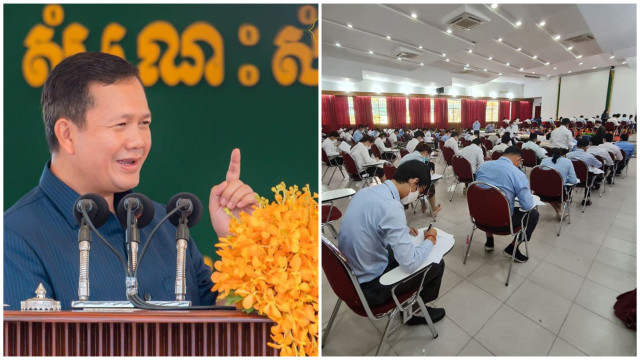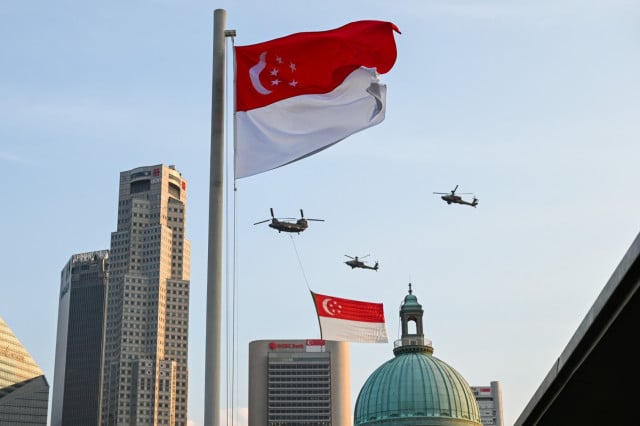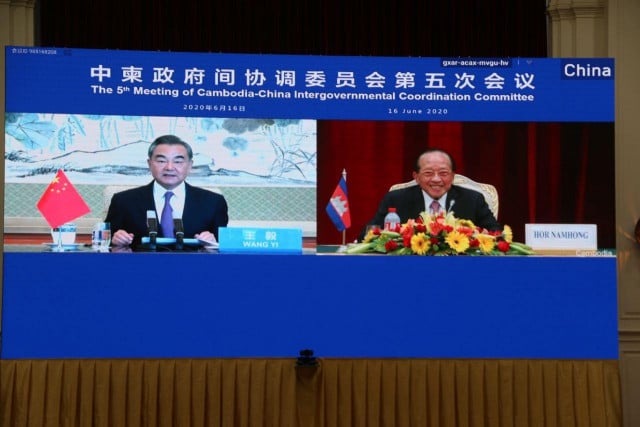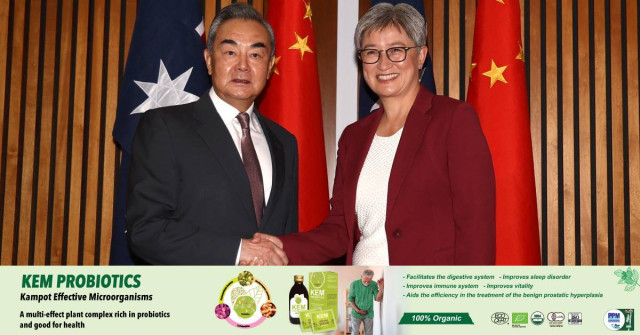New Procedures for Civil Servant Exams Must Fill the Gap of Previous Ones, Analysts Say

- By Meng Seavmey
- September 10, 2023 5:00 PM
PHNOM PENH — The new procedures for civil service examinations will give fair chances to all candidates and will be appreciated if conducted with fairness and transparency in response to such shortcomings in the previous procedures, according to analysts.
These statements followed Prime Minister Hun Manet’s announcement on Sept. 8 that the remaining civil service exams for 2023 would be postponed until new mechanisms for these examinations are put in place. Then, Civil Service Minister Hun Many said on Sept. 9 on his Facebook page that he fully supported the prime minister’s statement and policy regarding the reform of the civil service sector and the implementation of new examination mechanisms.
In his message, the prime minister said that he had previously received three requests from the Ministry of Civil Service regarding the authorization to hold this year’s recruitment exams. He added that the new procedure to select new public servants will be more specific, transparent, and fair for the selection of new public servants.
According to Yong Kim Eng, president of the People’s Center for Development and Peace (PDP), by coming up with a new procedure, the new government will provide young people with opportunities to become civil service officials based on their capability.
The actors and inspectors of the implementation of such mechanism are even more important than the mechanism itself, he said in interview on Sept. 9. “If the exams are held with fairness and transparency and without corruption, young people will welcome and appreciate the said mechanism,“ Kim Eng said. “Otherwise, people will criticize.
“If the officials who pass are not as capable as the failing candidates due to nepotism, the [new] government will face difficulty using their own officials,” he said. “This should be ended, so that people can trust the exam procedures again.”
Kim Eng stressed that there had been some candidates who did not have connections in the government and who had passed the exams. But the number of those remains small, he added.
Kim Eng suggested that the new mechanism break off the benefits of connections between the officials and candidates, eliminate corruption within the government framework, and stop the senior officials who are related to candidates from interfering with the exam results. “Otherwise, the new government won’t be able to get rid of this corruption with the new mechanisms,” he said.
San Chey, executive director of the Affiliated Network for Social Accountability (ANSA), agreed. Having a new mechanism for the exam is responding to the concerns people have raised about the civil service and military exams, he said.
Regarding the previous civil service exam procedures, San Chey had received, he said, “rumors from citizens that the results had not reflected the capability of the candidates.
“The results were different from the expectations and contrasted the candidates’ competence,” he said on Sept 9. “Some of the capable ones did not pass, but the passed ones were not so capable.
“It discouraged the candidates who were capable, and their parents,” he added, citing some people’s statements.
There have been many cases of favoritism or nepotism in government ministries and departments, Kim Eng and San Chey said.
Some cases involving officials bribed by people so they could join the government without passing the examination became known among the public, as well as the fact that some government officials were never or rarely seen at their government offices.
In April 2022, Justice Minister Keut Rith said that some officials in the justice sector work only one day a month while others were absent six months a year.
Then in August 2022, a Lieutenant General was fired for giving senior jobs in the ministry’s Sports Council and Association to two sons, a daughter, and a son-in-law. Saying that such corrupt practices had to be eliminated and that the exam must be transparent and of a high standard, former Interior Minister Sar Kheng had said that he had heard rumors about a corrupt official promising National Police positions for $10,000-$20,000 and others demanding $30,000.
In Dec. 2022, Sok Touch, the head of the Royal Academy of Cambodia, raised the issue of ‘ghost officials’ in government offices, suggesting as a possible measure that salaries be paid in cash instead of direct bank deposits. The request was turned down by the Former PM Hun Sen who said that using direct deposit is more convenient.
As Touch explained, most older public servants fail to turn up at work and some work for private companies beside their government jobs. More than 30,000 public servants are believed to be getting paid but working in name only.
According to Transparency International data, Cambodia ranked 150 out of 180 countries, scoring 24 on 100 on the Corruption Perceptions Index (CPI) in 2022. This 150 rank was an improvement compared to 157 in 2021 and 160 in 2020.
During his meeting with workers in Kampong Speu province on Sept. 9, Prime Minister Hun Manet raised up the issue regarding the new mechanism, saying that the civil service examination is part of the reform of the Ministry of Civil Service.
The reform will ensure that “the capable candidates will pass”, he said. “All candidates—although the exams are in different majors—will be taking the exams based on the same national mechanism.
“We must think of ways to use our officials effectively—don’t be like ‘all sizzle and no steak.’ We must strengthen the officials’ ability,” Hun Manet added.
According to San Chey of the Affiliated Network for Social Accountability, this is only the beginning of the reform: People will be monitoring the result of this new mechanism.















